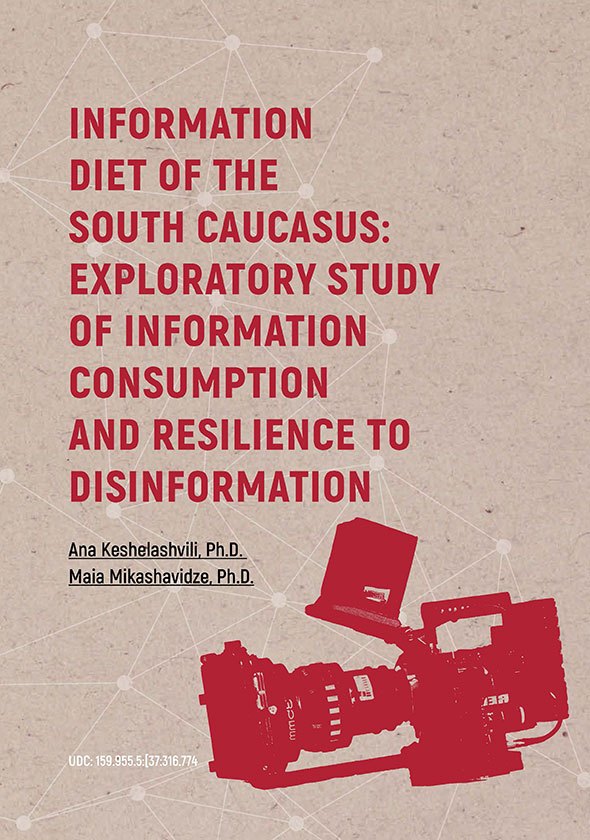
Information Diet of the South Caucasus: Exploratory Study of Information Consumption and Resilience to Disinformation
Volume 2 | No 1 | March 2023
Ana Keshelashvili; Maia Mikashavidze
Georgian Institute of Public Affairs (GIPA)UDC: 159.955.5:[37:316.774
Abstract
Proliferation of disinformation online and its distribution through social media platforms is harming the democratic institutions and processes. Abundance of information flowing through all kinds of sources and channels has fueled uncertainty among societies, especially among the younger generation, whose information diet might be limited to occasional news posts suggested by the algorithm of Facebook, Instagram, or other social media platforms. Ignorance about the socio-economic and political affairs makes people more susceptible to the influence of disinformation and eventually harms the development of countries and democracies, especially in smaller, younger, or even hybrid democracies as in the case of the South Caucasus. Resilience to disinformation is a complex concept, measured on the macro- meso- and micro levels. For the purposes of this research, however, we focus on individuals, especially young adults, and explore their information diet across the three South Caucasus countries – Georgia, Armenia, and Azerbaijan, to understand the social media use, consumption of public affairs news along with the trust in legacy media, and ways of discerning between the false and trustful news. The research uses triangulation of quantitative and qualitative secondary and primary data from the three countries. The findings contribute to better understanding of habits of the young audiences and can help improve the ways of strengthening their resilience to disinformation.
Keywords: Caucasus, media consumption, social media use, disinformation, resilience

